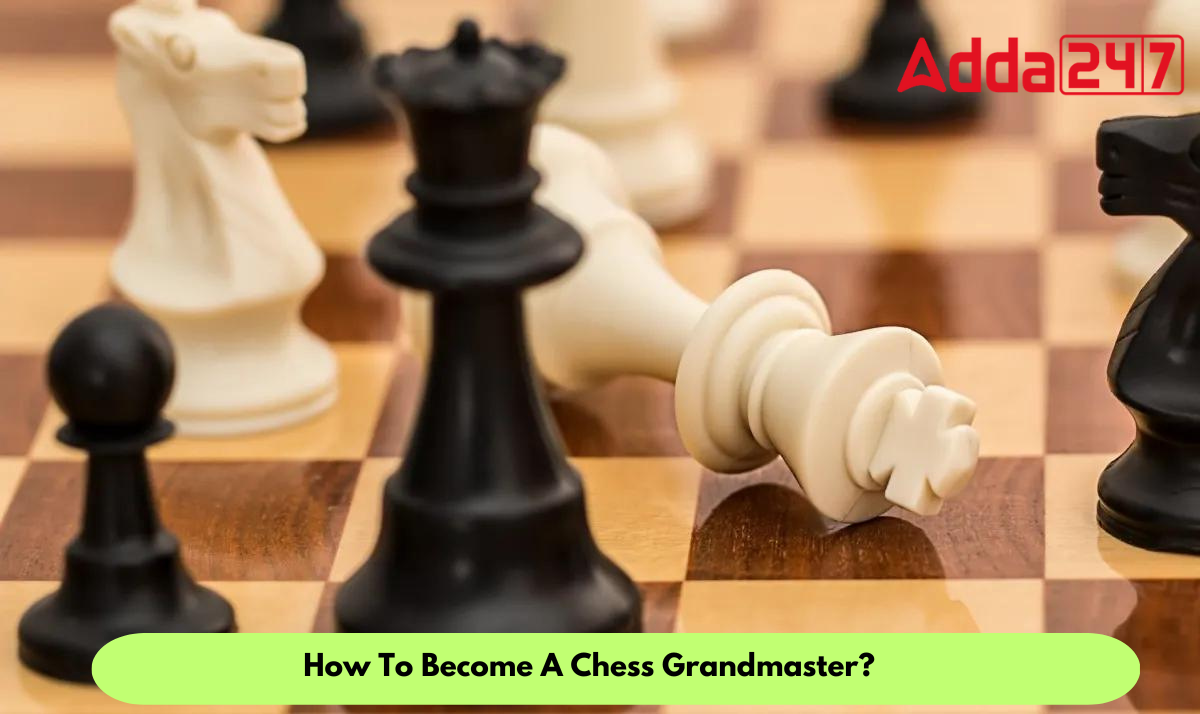What is a Chess Grandmaster?
The grandmaster title stands as the pinnacle achievement in chess, and once bestowed upon a player, it is a permanent designation. Beyond this, the ultimate aspiration for a chess player is to attain the title of world champion, achieved through triumph in the most formidable tournaments. The majority of chess grandmasters transition into professional careers in the realm of chess.
How To Become A Chess Grandmaster?
The initial step toward achieving the grandmaster title, following a substantial amount of dedicated chess play, involves consulting the International Chess Federation (FIDE) handbook. This comprehensive guide outlines the regulations and progression pathways within the international chess community.
To attain the grandmaster title, elite chess players must fulfill two key objectives: attain a FIDE rating exceeding 2500 and secure a specific number of GM norms. A GM norm is obtained through participation in tournaments against other titled chess players. Notably, to achieve a GM norm, a player must maintain a 2600 rating in a tournament comprising a minimum of nine rounds, competing against a formidable field of other distinguished chess players. A significant proportion of the participants should hold titles such as FM (FIDE Master), IM (International Master), CM (Candidate Master), and others, with some being chess grandmasters (GM).
The Road to Grandmasterhood: Specific Requirements
Understanding the Grandmaster Title
The Grandmaster Blueprint: Essential Elements for Chess Success
The Grandmaster title stands as the pinnacle of chess achievement, symbolizing exceptional skill, strategic prowess, and an enduring commitment to the game.
Getting Started: Where and When to Begin
- Chess for All Ages: Contrary to popular belief, it’s never too late to start the chess journey. Whether you’re a young enthusiast or someone discovering chess later in life, the game welcomes all.
- Early Exploration for Young Minds: For those starting early, childhood is an ideal time to absorb the fundamentals of chess. Engaging with the game at a young age lays a solid foundation for future progress.
Building Your Chess Education
- The Learning Curve: Chess education is a dynamic process that involves understanding principles, tactics, strategies, and endgames. A plethora of resources, including books, online platforms, and chess coaches, can guide your educational journey.
The Art of Relentless Practice
- From Novice to Master: Becoming a Grandmaster demands consistent and purposeful practice. Regular gameplay against opponents of various skill levels, along with analysis of your own games, enhances strategic thinking and adaptability.
Navigating Tournaments and Competitions
- Testing Grounds: Tournaments serve as crucial testing grounds for your chess skills. Regular participation not only sharpens your competitive edge but exposes you to diverse playing styles, providing invaluable experience.
Seeking Mentorship and Guidance
- Learning from the Masters: Experienced mentors or coaches play a pivotal role in the journey to Grandmasterhood. Their insights, tailored guidance, and strategic advice can significantly accelerate your progress.
Patience and Perseverance: The Marathon Mentality
Embracing Challenges: The road to Grandmasterhood is a marathon, requiring unwavering dedication, patience, and resilience. Embrace challenges as opportunities for growth, learning, and improvement.
Fostering Passion for the Game
- Beyond the Board: Maintaining a genuine passion for chess fuels your journey. Let the intricacies and challenges of the game inspire you to push boundaries and unlock your full potential.
Current Regulations
To attain the esteemed title of Grandmaster, a player must meet the following criteria as outlined by the current regulations:
Norms Requirement:
Accumulate favorable results, known as norms, from a minimum of 27 games in tournaments.
To qualify for a norm in a tournament:
Achieve a rating performance of at least 2600 by the tournament’s conclusion (categories for tournaments are no longer applicable).
Face opponents, of which a minimum of 33% must be Grandmasters.
Encounter opponents, of which at least 50% hold a FIDE title other than Candidate Master and Woman Candidate Master.
Compete against opponents with an average rating of at least 2380.
Engage with opponents from a minimum of 3 different chess federations, including the player’s own federation.
Limit the number of opponents from the player’s own federation to a maximum of 60%.
Restrict the percentage of opponents from a single federation to a maximum of 66%.
Secure at least one norm from a Swiss tournament featuring a participant pool of at least 40, with an average rating of 2000 and above.
Rating Requirement:
Maintain an Elo rating of at least 2500 at some point, with no obligation to sustain this level for the title.
- Additionally, the Grandmaster title can be automatically conferred under specific circumstances, without adhering to the aforementioned norms and rating criteria:
- Winning the Women’s World Championship, the World Junior Championship, the World Senior Championship, or a Continental Chess Championship, provided the player’s peak FIDE rating is at least 2300.
- It’s important to note that FIDE titles, including the Grandmaster title, are lifelong honors. However, FIDE regulations permit the revocation of a title in cases of “use of a FIDE title or rating to subvert the ethical principles of the title or rating system” or if a player is found to have violated anti-cheating regulations in a tournament upon which the title application was based.
- For detailed and up-to-date regulations, players are advised to refer to the FIDE Handbook.




 Why the Adani-Marseille Pact Could Be a ...
Why the Adani-Marseille Pact Could Be a ...
 Which River is known as the English Chan...
Which River is known as the English Chan...
 Modi–Macron Launch India-France Year of ...
Modi–Macron Launch India-France Year of ...








